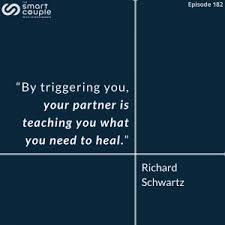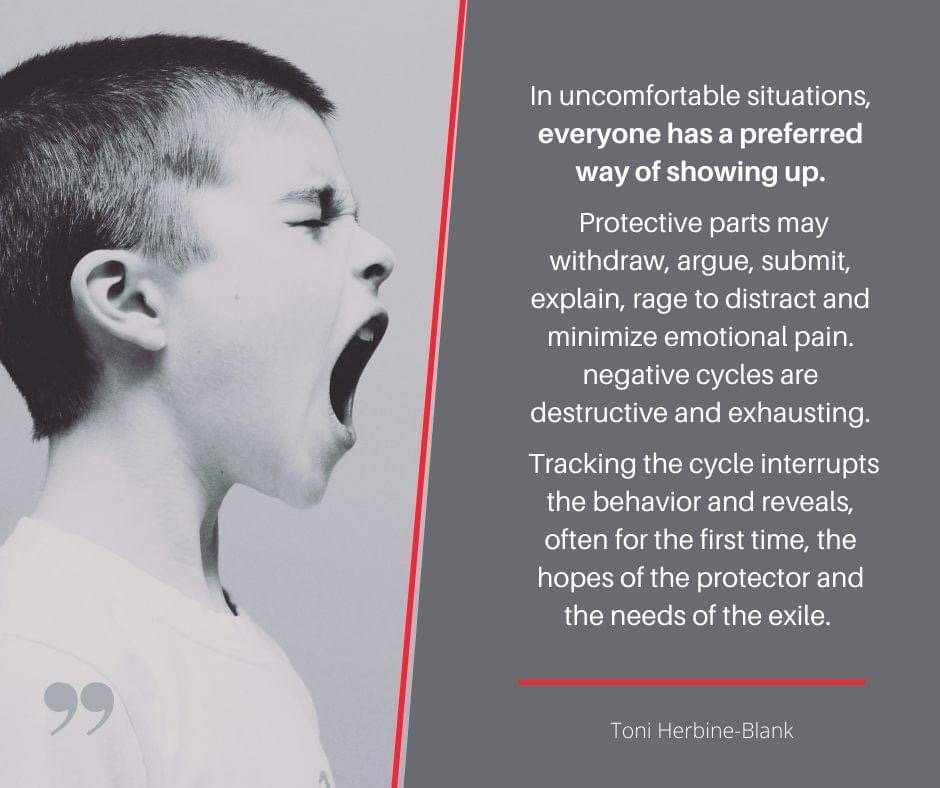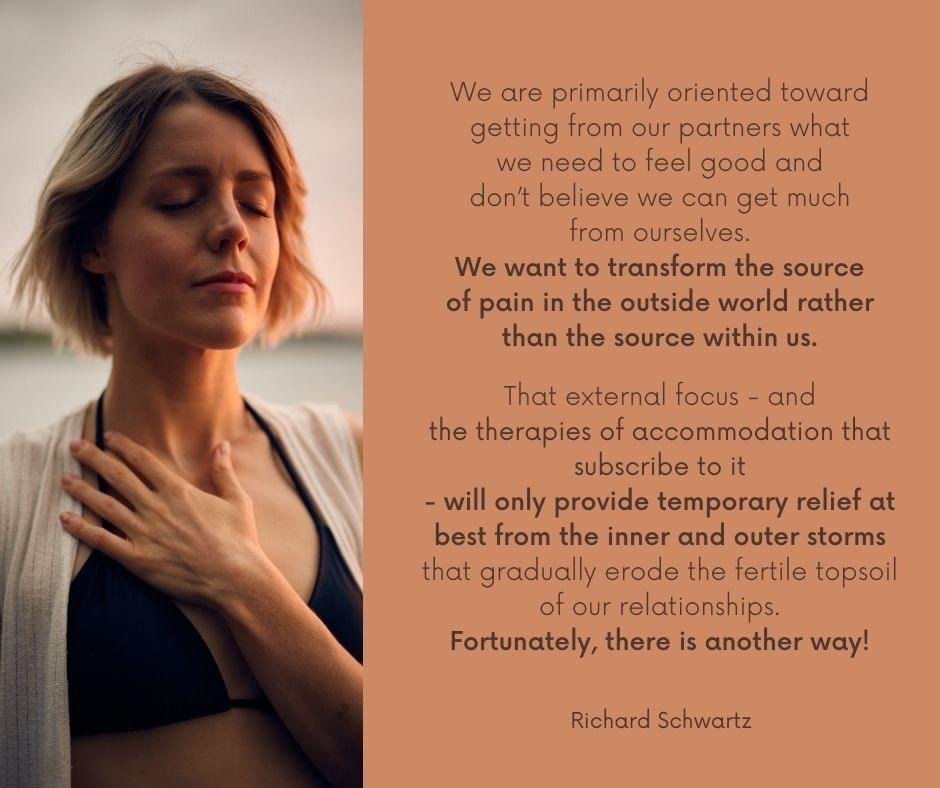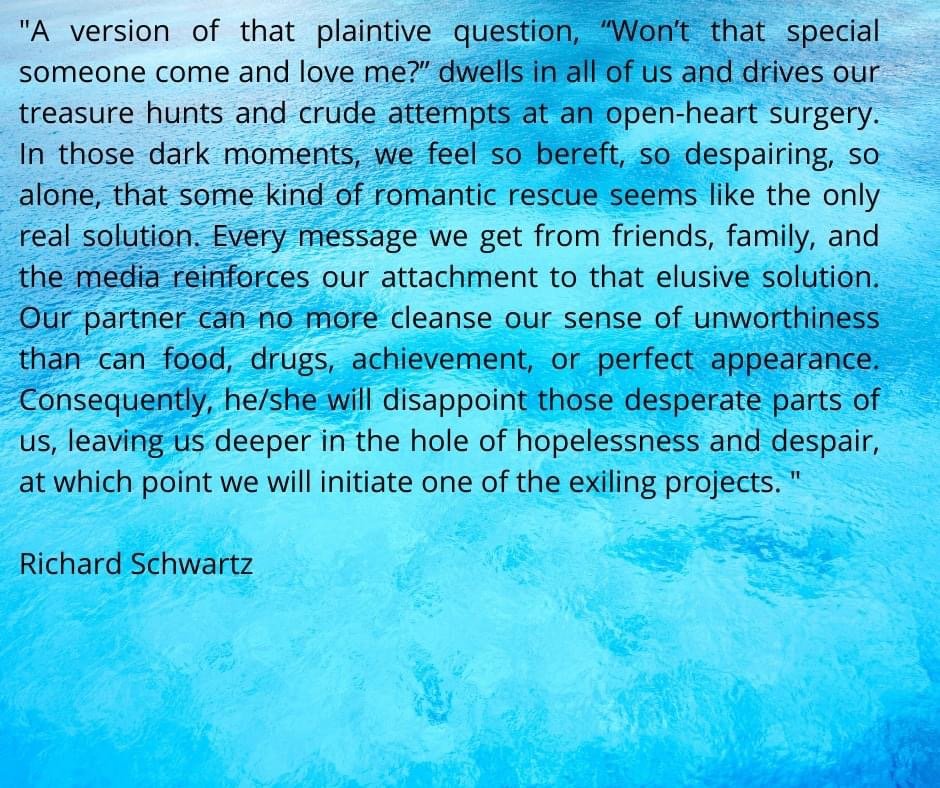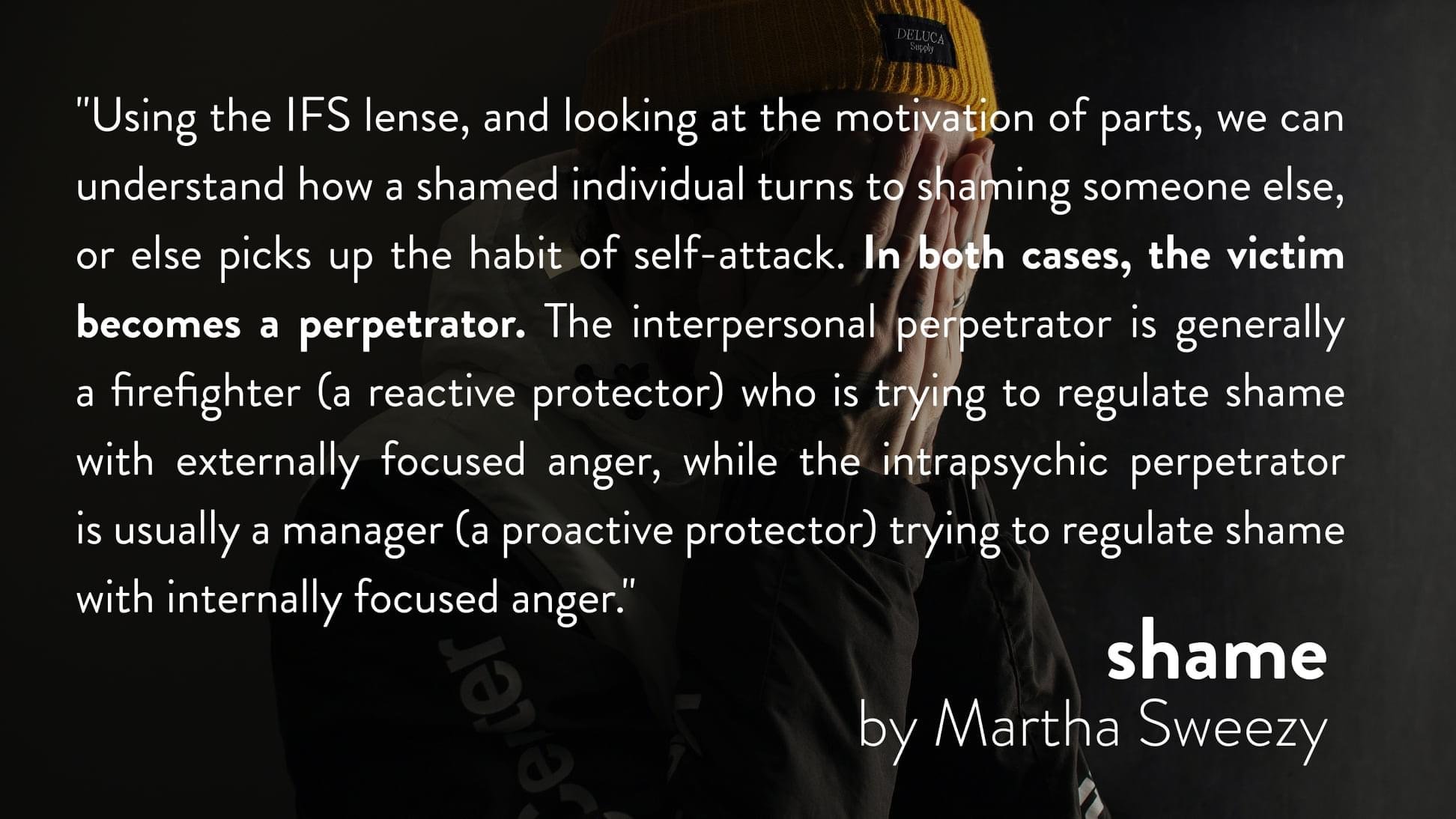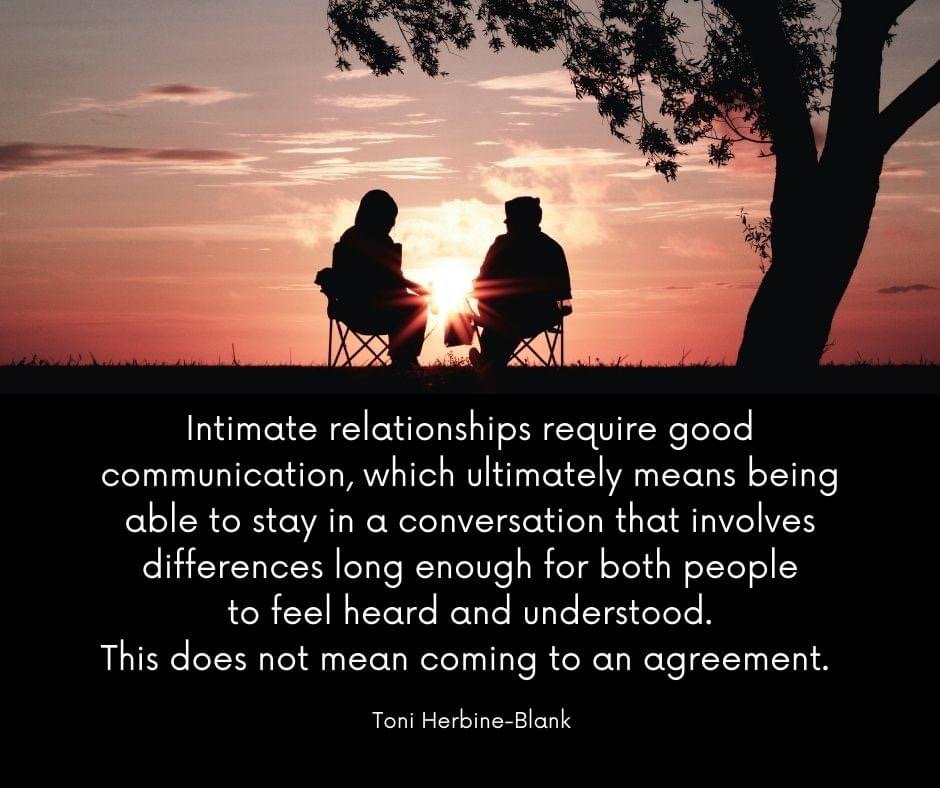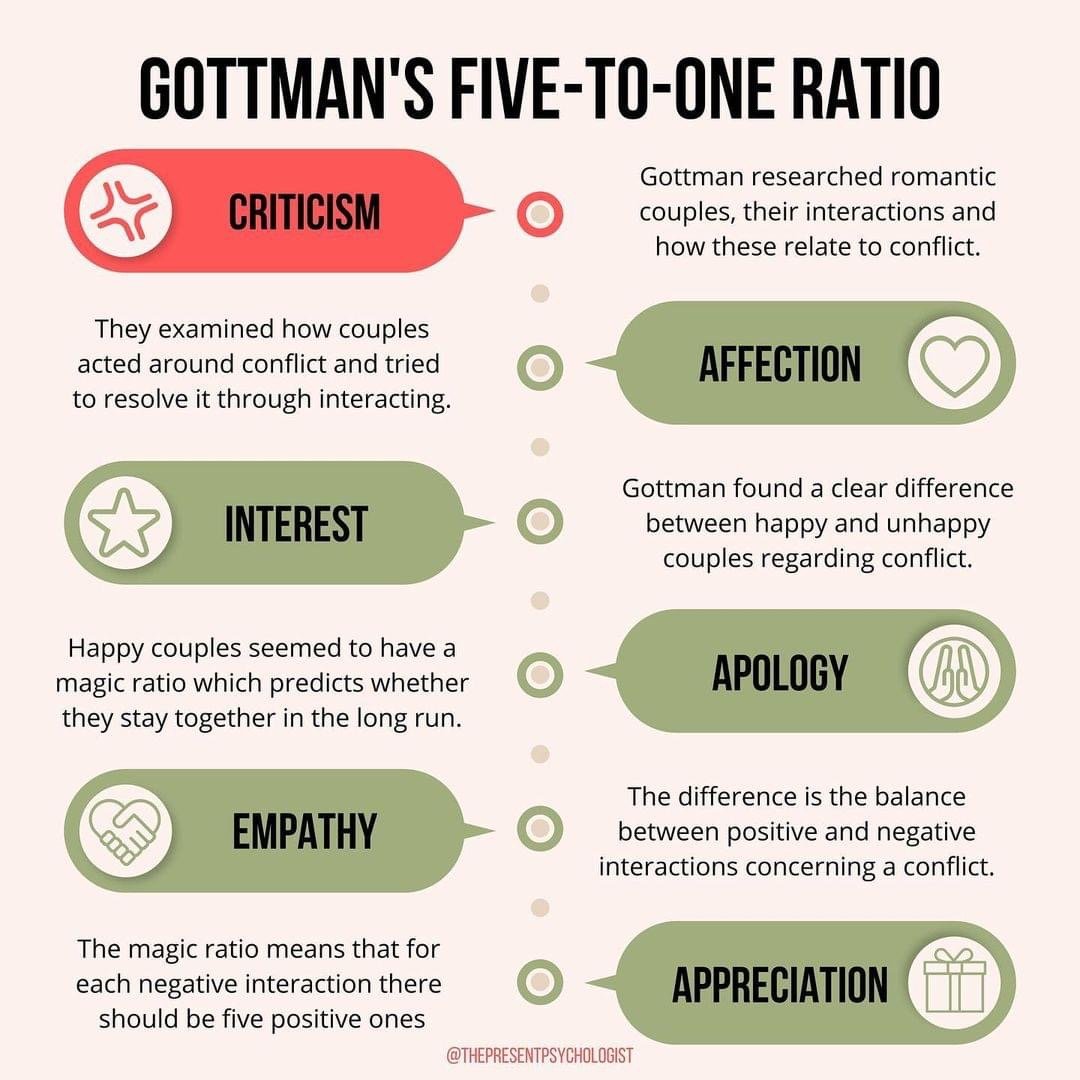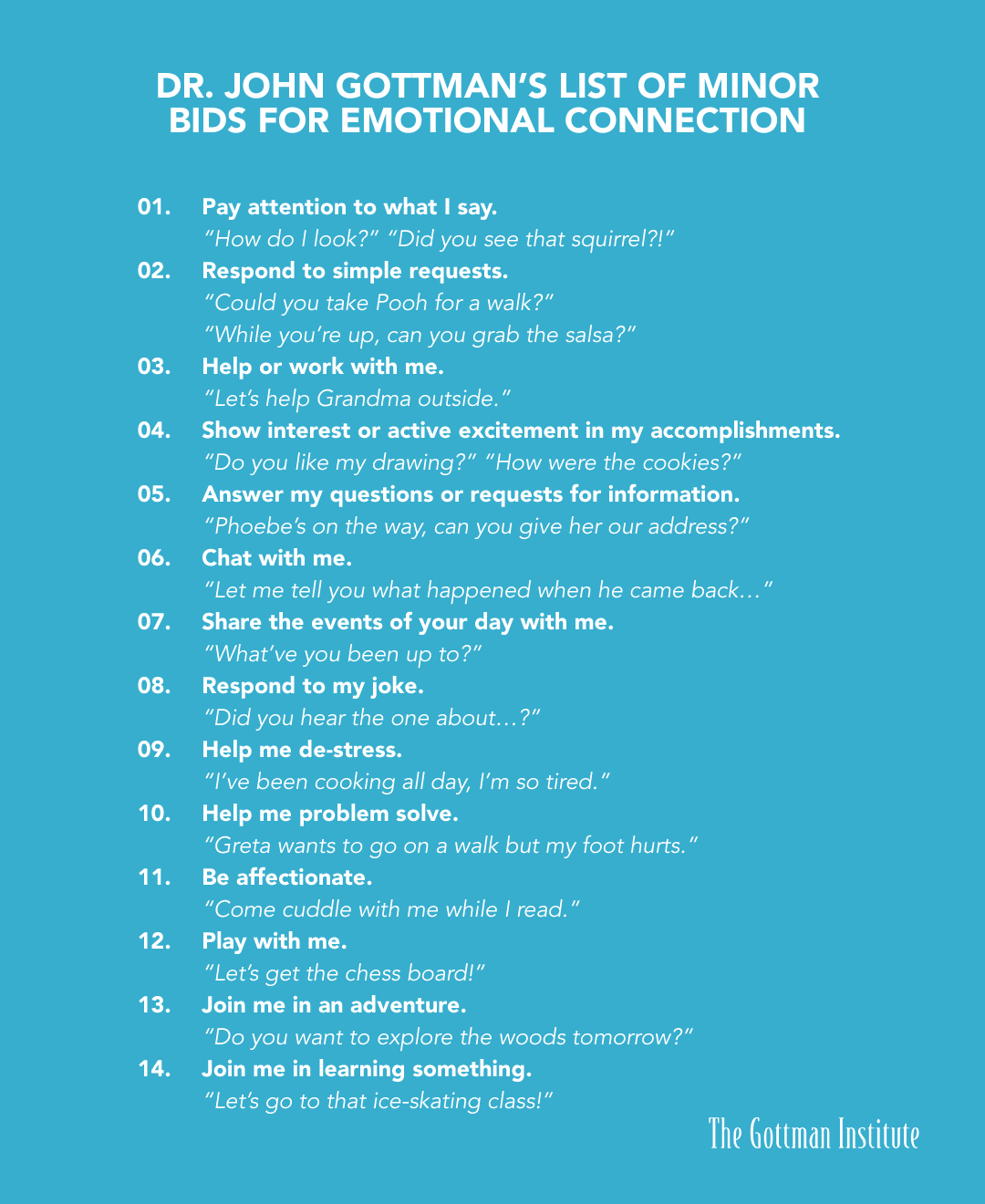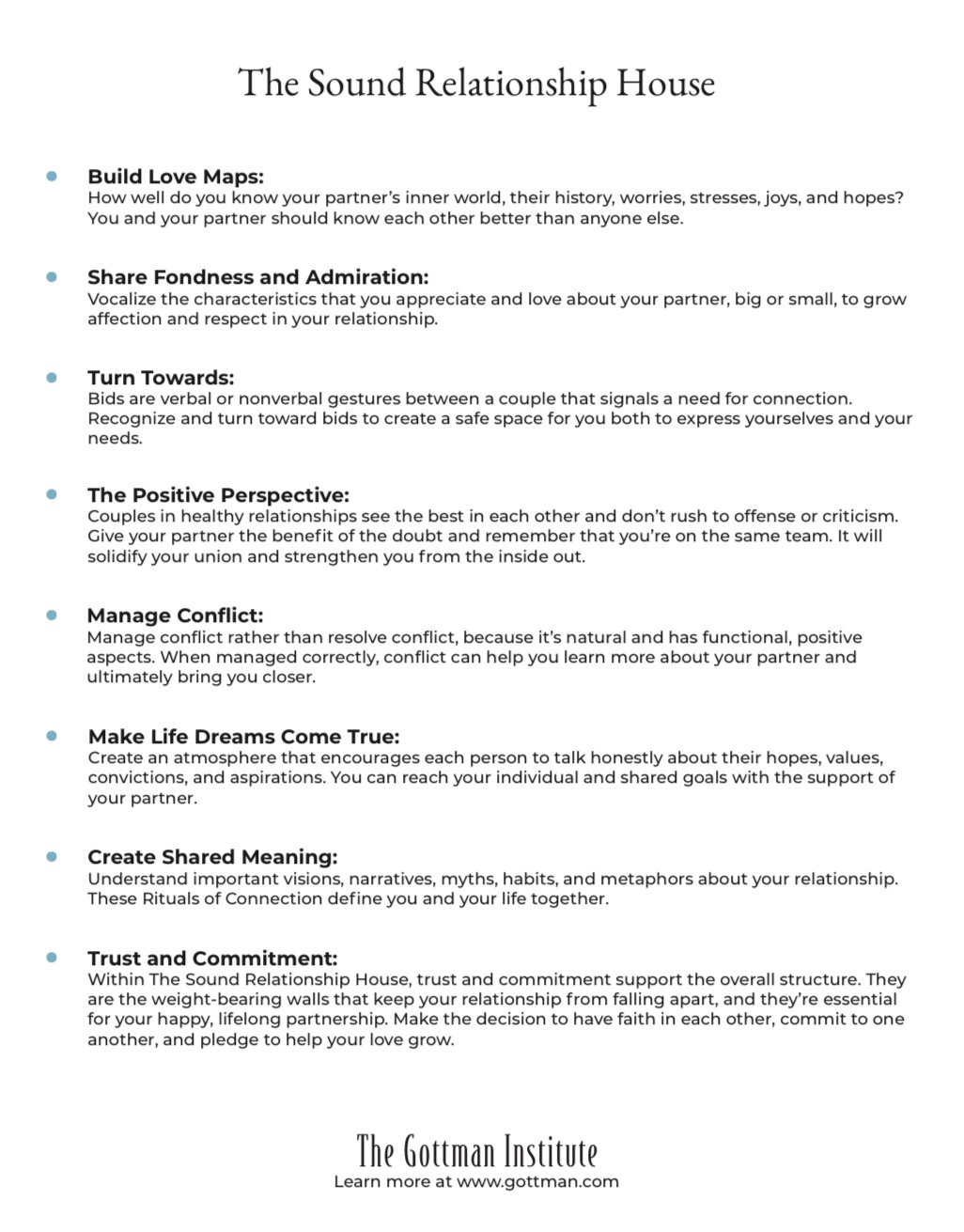Relationship Resources
I thought I would write a short introduction to Gottman relationship therapy and IFIO, and share some of my favourite infographics/quotes from my couples/relationship work. . My couples work perspective comes from the Gottman Institute with their Sound Relationship House model, and then both IFS and IFIO - Intimacy from the Inside Out© - and also Imago therapy. Depending on the individual or the couple, we start either with looking within and doing individual work - doing a u turn and then returning to the relationship - or starting off, turning towards the relationship, picking up lots of psychoed tools to create a “good enough” relationship before delving into the depths of each partner individually, should they wish to start using each other as a resource for healing..
Firstly, I’d like to say that for me ‘the missing link’ in my couples work was finding the quite extraordinary Gottman Institute’s work, which has provided evidence based psychoeducation tools. How to have a healthy relationship: so many of us didn’t have this modelled when we were kids! John and Julie Gottman have been working for decades to discover what makes a relationship work, what predicts divource, how to fight fair and how to repair after a conflict. How some problems are solvable and how 69% are perpetual, unsolvable - and how to navigate through this with fondness. With painstaking research, in ‘love labs’ with thousands of couples, analysing hours of video, transcripts and interviews they have amassed a huge amount of data and funnelled this into some very helpful psychoeducational tools. These are easily available on the internet, much of it for free (there are some excellent resources you can buy too, in their ‘store’, look out for the discounts often available). Here is a synthesis of the Gottman approach - an hour’s talk by John Gottman - so many fantastic tips -
Making Marriage Work
and here are two animated short videos with some very useful concepts:
So, do have a look at the Gottman tools and study the Sound Relationship House. Rather than just focusing on conflict and ‘active listening’ like many relationship therapy models, the Gottmans’ start with friendship - finding (refinding?) love, friendship, fondness and admiration by reigniting a more positive perspective, turning towards each other, and exploring each others ‘love maps’ - the terrain we find out about in early relationship and sometimes this gets lost as we spend more time together. Later on there are many conflict negotiation tools, particularly avoiding the 4 Horsemen - Criticism, Defensiveness, Contempt and Stonewalling. Looking at our dreams, trust and commitment are the tools for the roof and the walls! So much of this can be done without a therapist, but I can signpost you to the tools and support you in areas that need strengthening or rebuilding. There’s a big questionnaire you can each take which I’d be glad to offer, which shows you areas of concern and areas of strength, creating the basis of your couples work together.
Whilst I work with individuals or couples using Gottman tools, I have always in mind the principles of IFS and IFIO. Whilst its so important to look after the relationship, its vital to do a ‘u turn’ and look within, to the parts of us that might be porlarised, cynical, suspicious or have differing opinions about what makes relationships work, and these protecting parts may hold burdens which make relationships really hard. IFIO a model of couples therapy that draws primarily from Internal Family Systems (IFS) and Imago therapy, but also includes aspects of psychodynamic theory, systems thinking and neuroscience. It is an experiential model born out of a desire to carry the concepts of IFS into a relational setting and to use the intimate relationship itself as a vehicle for growth and healing of the individual, as well as the couple. h
IFIO a model of couples therapy that draws primarily from Internal Family Systems (IFS) and Imago therapy, but also includes aspects of psychodynamic theory, systems thinking and neuroscience. It is an experiential model born out of a desire to carry the concepts of IFS into a relational setting and to use the intimate relationship itself as a vehicle for growth and healing of the individual, as well as the couple.
This work assumes that each us has access to an inward presence (the Self) that supports the notion that human beings are resilient and have inner resources of self -love and self-regulation. It is a non-pathologizing approach that helps people make sense of their life experience in a safe and collaborative way.
In IFIO therapy, each member of the couple is invited into a process, which leads to a self-compassionate, and secure relationship with him or herself.
This then makes it possible to stay connected with oneself and one’s partner even in times of stress and relational rupture. Inviting the exploration of each partner’s individual’s inner life supports couples in envisioning a lively dance that includes:
Communicating well; Repairing inevitable rupture; Making room for the needs of both individuals, as well as the relationship; and Exploring authentic heartfelt connection.” (Toni Herbine–Blank)
The Goal of Therapy is to help you, as a couple, separate out how to have difficult conversations without them being wounding conversations.
We believe you will be able to tolerate difficult conversations and solve your own problems within your relationship, once you learn how to conduct vulnerable interactions safely.
We recognise that no matter what words you use to each other, no matter what demands you place on each other, that underneath there is the desire to know and have a felt sense of: Do you hear me? Am I safe with you? Will you meet my needs? We also recognise that wounding from childhood is often beneath troubled interpersonal dynamics and the recognition and exploration of this can become a rich place for growth for you as a couple.
From my own personal experience and in my work with couples and groups I would like to say that this work can be so wonderful, connecting and expansive If both of you are prepared to do the work (and it’s not easy but it can be fun and oh so rewarding) the possibilities for an engaging loving conscious relationship is there.
So.. here are some of my favourite info graphics and memes that give you a flavour of the Sound Relationship House, IFIO, IFS and courageous communication 💕
Firstly, an excellent podcast with Richard Schwartz ‘How to get the parts of you to work together and with your partner’. https://youtu.be/B6QKBbbJl34
Reading Dick’s ‘You are the One you’ve been waiting for’ or (more cheaply!) listen to it on audiobook, demystifies the process and questions our paradigm of having the other as a redeemer..
The Porcupine Story:
The story goes that it was a particularly harrowing time in porcupine land. The winter was severe and the porcupines were finding survival difficult. They were freezing to death. However they discovered that just by being in close proximity they were able to feel warmer and protect each other. Being closeted together meant that their bodies generated heat which helped keep them warm. So they found they could survive the cold by just staying together!
But there was a problem. As they moved closer, they found each other’s quills to be a bother—they poked and hurt. Feeling the discomfort, some porcupines decided to avoid the pain from the quill pokes and moved away. And as they ventured out on their own, the cold got them and they died. Other porcupines realized it was better to stay together and survive rather than go out on their own and die. Getting poked by the quills of porcupines that were close to them seemed like a small price to pay.
Here are a few podcasts/videos:
Toni Herbine Blank and IFIO: https://youtu.be/ro5IkuQYqR8 R
https://youtu.be/Kr0UqChnJuk Dick Schwartz on trauma and relationships. part 2:https://youtu.be/ooTKQarRRpc and part 3:https://youtu.be/iTs86tbPiCI
The Return after the U turn .. Toni Herbine Blank https://youtu.be/7iG12d91Eyo
Hope that’s helped you get an idea of some IFIO/Gottman principles 😊
Warm wishes to you!
Natasha
Secondly, I use the Gottman Method of Couples therapy. This is evidence based, lots of great ideas integrating many therapies out there!



